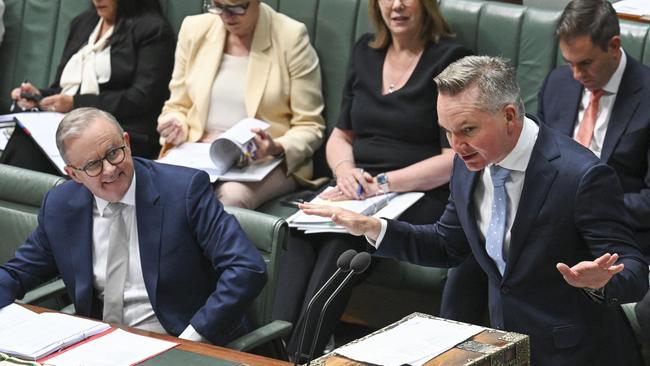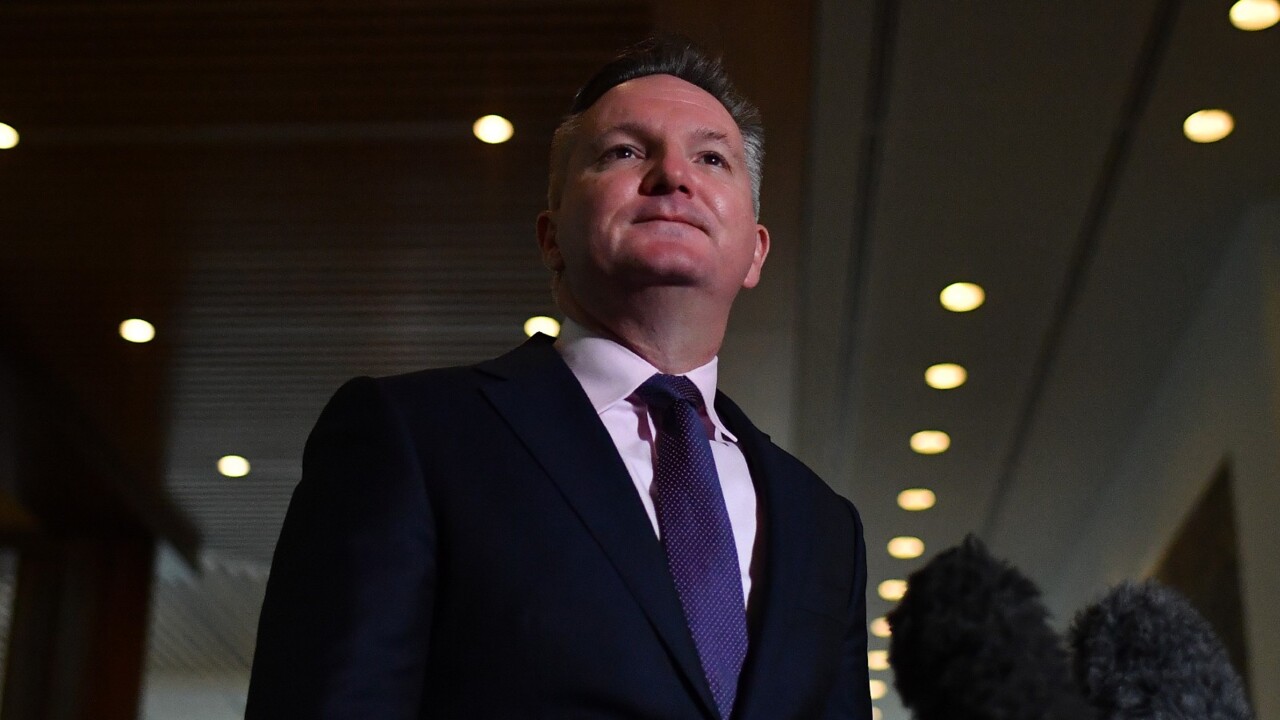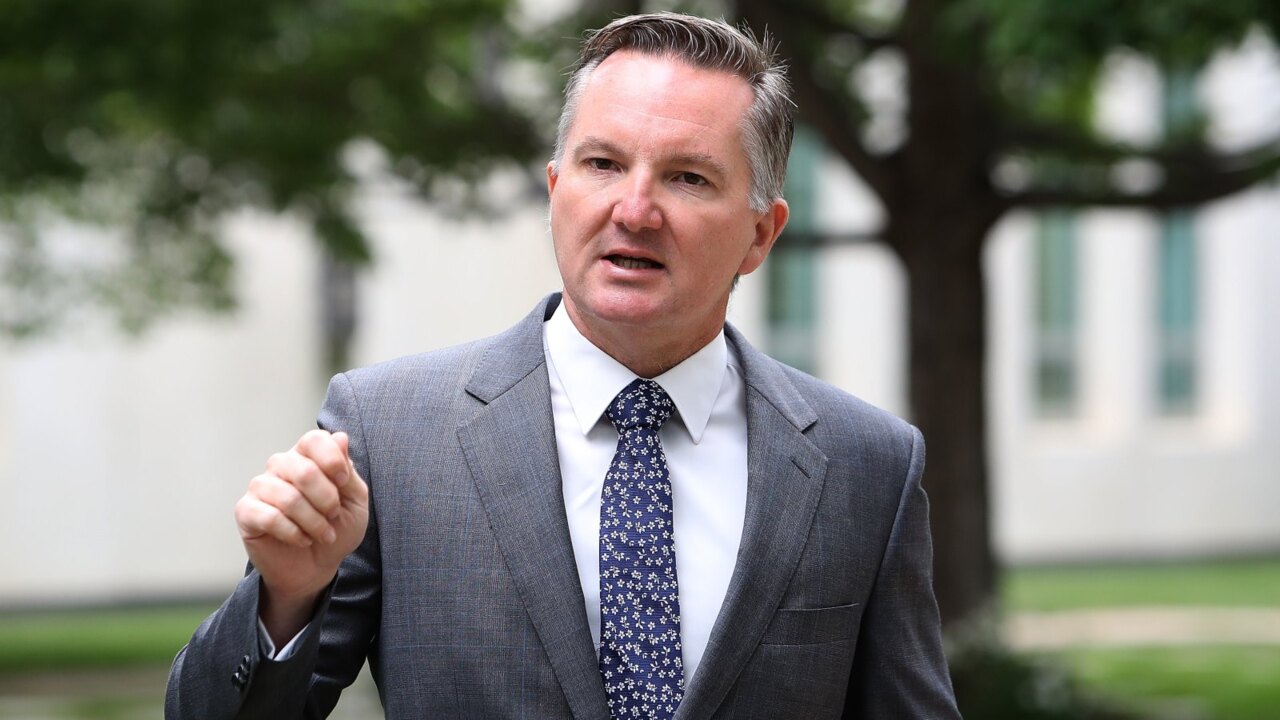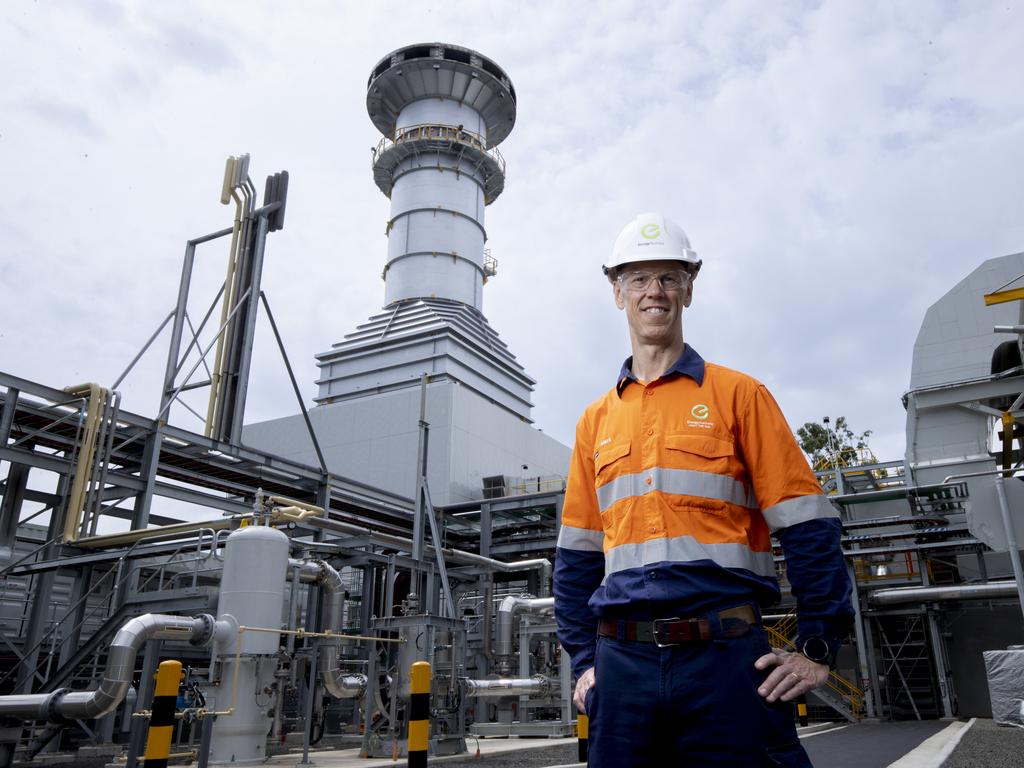Anthony Albanese grabs wheel from Chris Bowen on fuel-efficiency standards
The PM has stepped in to overhaul Labor’s fuel-efficiency standards plan amid concerns key stakeholders are being carved out and forced to sign non-disclosure agreements.

Anthony Albanese has stepped in to overhaul Labor’s fuel-efficiency standards plan amid concerns stakeholders are being carved out of policy negotiations across government portfolios and forced to sign nondisclosure agreements banning them from speaking publicly.
Under pressure from motoring groups, farmers, car manufacturers and trading partners to water-down the New Vehicle Efficiency Standard, federal cabinet on Monday night was expected to endorse a revamped plan taking into account Joe Biden’s softening of US rules.
Transport Minister Catherine King and Climate Change Minister Chris Bowen will unveil the updated NVES on Tuesday as the government scrambles to remove political barnacles before MPs leave Canberra for an extended six-week pre-budget parliamentary break.
The Prime Minister’s intervention to broker a more politically favourable outcome – after he was directly lobbied by stakeholders – comes just over a year before the 2025 federal election and mounting pressure from Labor backbenchers. The Australian understands Mr Albanese is adopting a more pragmatic approach across contentious policies to lift Labor’s electoral standing.
Under an NVES model supported by critics of the government’s plan announced last month, the trajectory of the fuel efficiency standard would be flattened between 2025 and 2027 and targets would be back-ended towards 2030, allowing a slower change. There is also support for some 4WD, ute and SUV models to be granted a fit-for-purpose trajectory.
Under the government’s previous preferred model – attacked by the Coalition as a “family car and ute tax” – Labor’s goal was to achieve a 60 per cent reduction in average new car emissions by 2029, forcing carmakers to bring down the average carbon output of their stock sold into Australia.
Such a move would require car manufacturers to progressively sell more electric vehicles and hybrids into Australia to offset emissions from their petrol fleet. A credit-trading system would allow suppliers who beat targets to trade credits with those who fell short. Car makers would be fined about $100 per gram of carbon over which their fleet exceeds the threshold.
The Albanese government, which will finalise a more ambitious 2035 emissions-reduction target by December, is seeking to push through its NVES legislation by mid-year, ahead of the scheme commencing in 2025.
Electric vehicle and climate change groups will likely oppose any major watering-down of the NVES, while the Greens have threatened to scuttle the plan in the Senate if the government strikes a deal with the Coalition to secure passage of changes to the Petroleum Resource Rent Tax.

The fuel-efficiency standards impasse comes amid souring relations between the government and industry groups, business leaders and transparency activists over the increasing use of NDAs, threats to freeze out critics and blocking the release of Freedom of Information requests.
Mr Bowen said on Monday the government had been consultative on the NVES despite the Federal Chamber of Automotive Industries and Australian Automobile Association, which had critiqued the government’s approach, being excluded from a key meeting with government officials last Thursday.
“What the Minister for Transport and I have been doing is a very similar process to that taken by the previous government when they thought about doing this … putting out a preferred model and consulting on it,” Mr Bowen said.
“That consultation is very close to a conclusion.”
Criticism of the government’s consultation processes contrasts with the approach of former Labor prime minister Kevin Rudd and party statesman John Faulkner who railed against the use of NDAs outside national security, commercial-in-confidence and cabinet-sensitive deliberations. Business leaders say the government strategy is underpinned by a “divide and conquer” mentality.
Tasmanian independent senator Jacqui Lambie said keeping stakeholders quiet was not conducive to policymaking and “completely unacceptable”.
“If it’s a national security matter, then that makes sense,” Senator Lambie said. “But why is the government gagging stakeholders over policy discussions? It’s yet another case of the shocking lack of transparency in our politics.”
Centre for Public Integrity chair Anthony Whealy, a former NSW Supreme Court judge, said the government was “lagging behind (transparency) promises it made at the election”.
“Whether it’s Labor or the Liberals, it’s the same thing going on in government,” Mr Whealy said. “The disappointing thing is Labor made the promise to be more open and have more transparency.
“In general terms, these things (confidentiality agreements) are increasing not lessening. Secrecy is becoming more and more the modus operandi. It’s not satisfactory. This is not transparency.”

Asked about transparency concerns in relation to confidentiality demands across religious freedoms, NVES, industrial relations, PRRT and environmental policies, a government spokeswoman said engagement with religious and community organisations had occurred on an agreed confidential basis. “The government has engaged constructively with a range of religious and other community organisations over many months. The government conducts meaningful consultation across a range of issues,” she said.
Manager of opposition business Paul Fletcher said the government had developed “a reputation for operating in secret and avoiding scrutiny … (it) reveals a degree of paranoia that is more typically associated with unelected autocrats than with democratically elected governments”.
The revamped NVES comes after the Biden administration last week announced it would soften its emissions standards to give carmakers more time to adapt, in response to criticism the original plan was too aggressive and could lead to job losses. Rather than demanding 60 per cent of new vehicle sales be electric cars by 2030, the US Environmental Protection Agency revised the target to 56 per cent by 2032.
Opposition transport spokeswoman Bridget McKenzie said the government was throwing a shroud of secrecy over discussions that had “far-reaching implications” for the motor industry.
FCAI chief executive Tony Weber said it would welcome moves to water down proposed fuel-efficiency standards. The FCAI had warned Labor’s preferred model would drive up the costs of some vehicles and impact consumer choice.





To join the conversation, please log in. Don't have an account? Register
Join the conversation, you are commenting as Logout